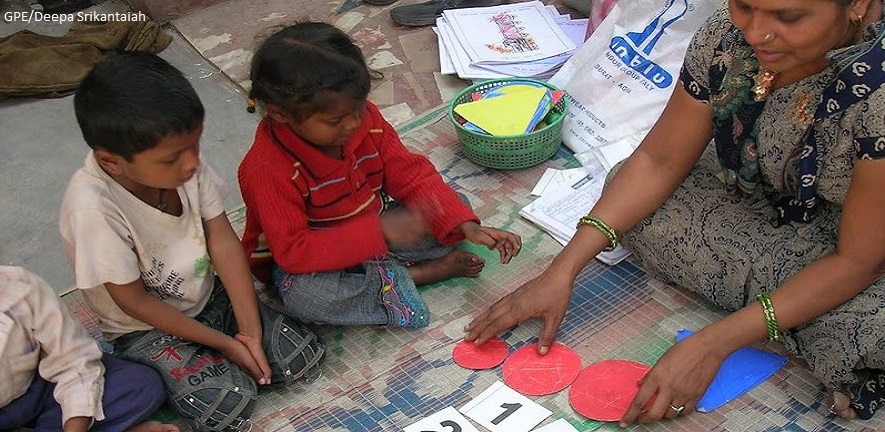Responsive models of child development in India
Project summary
This project examines early childhood care and education (ECCE) in India. The Integrated Child Development Scheme (ICDS) has been a flagship national welfare programme for early childhood development. Despite its expansion, the ICDS reaches only 48 percent of children between the ages of 0-6. Access to quality ECCE provision, both through the ICDS and other providers, is highly differentiated by caste, ethnicity, religion, economic status and educational background.
This research tackles the problem of how to scale quality ECCE. It analyses the contexts, practices and costs of ECCE for disadvantaged families/communities in two Indian states of Tamil Nadu and Bihar. Drawing on ethnographic approaches, including in-depth interviews with key stakeholders, it maps the practice of ECCE within both informal and formal settings. The project aims to generate data through fieldwork for six months across the districts of Gudalur and Katihar, respectively. The study engages ICDS and non-ICDS ECCE centres, focusing particularly on the experiences and negotiations of families within each. Comparison of the different histories and practices of ECCE within families and institutions aims to reveal interactions between social, economic and political factors that are critical to the development of contextually-responsive models of ECCE. In particular, it seeks to bring to the fore the voices of marginalised families and communities in considerations of ECCE expansion and reform.
Furthermore, the research investigates the different kinds of ECCE provisions (for example: state-run centres for nutrition, health and pre-school education; private pre-schools; non-governmental organisation centres), to consider different costs and policies for scaling contextually-relevant models of ECCE. Ethnographic inquiry, combined with an analysis of financial costs and service delivery, provides inputs for a policy simulation exercise. In doing so, the project aims to broaden the framework of development policy and practice in ECCE, to include the interactions between the political economy and the knowledge and experiences of communities surrounding early childhood development.
Research team
Principal Investigator: Dr Jyotsna Jha, Centre for Budget and Policy Studies (CBPS)
Co-Principal Investigator: Dr Arathi Sriprakash, University of Cambridge
Post-doctoral Research Associates: Dr R. Maithreyi, CBPS; Dr Pallawi Sinha, University of Cambridge; Ketaki Prabha, CBPS; Akash Kumar, CBPS; Sharad Pandey, CBPS; Arun Viknesh, CBPS
Duration
23 September 2017- 28 March 2019
Funders
The project is jointly funded by the British Academy and the Department of International Development, and is undertaken in collaboration with Centre for Budget and Policy Studies, India.
Publications
Rights, responsibility, and participation in education: The case of the right to education in India
Sriprakash, A. and Maithreyi, R. 2018
In NORRAG Special Issue, 1 The Right to Education Movements and Policies, p. 84-86
The governance of families in India: Education, rights and responsibility
Maithreyi, R. and Sriprakash, A. 2018
Comparative Education 54 (3), 1-18
https://doi.org/10.1080/03050068.2018.1430299


